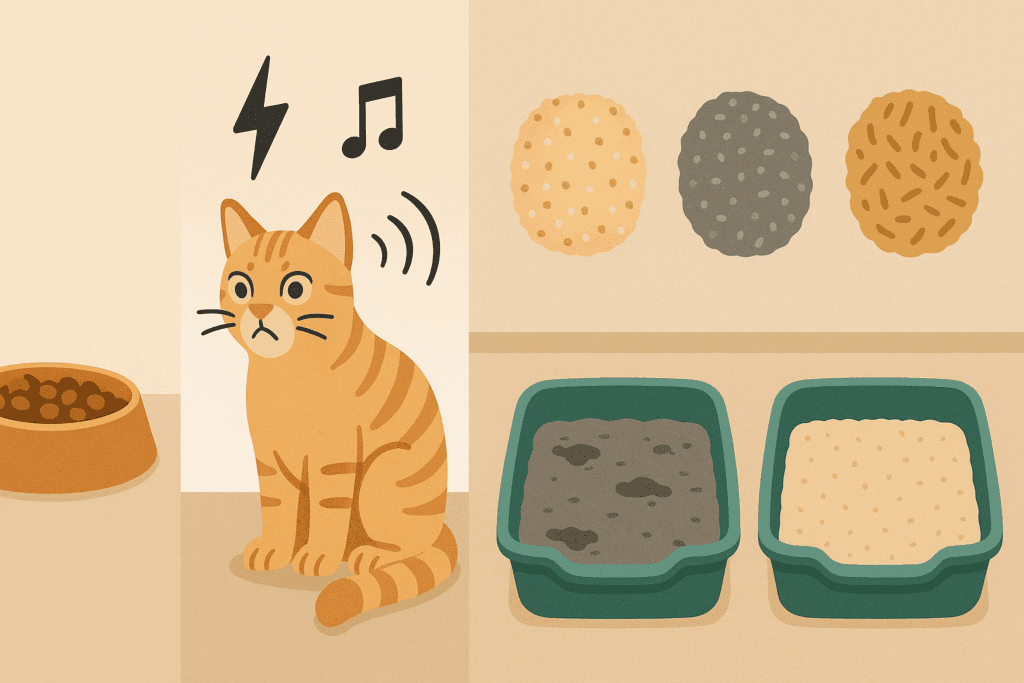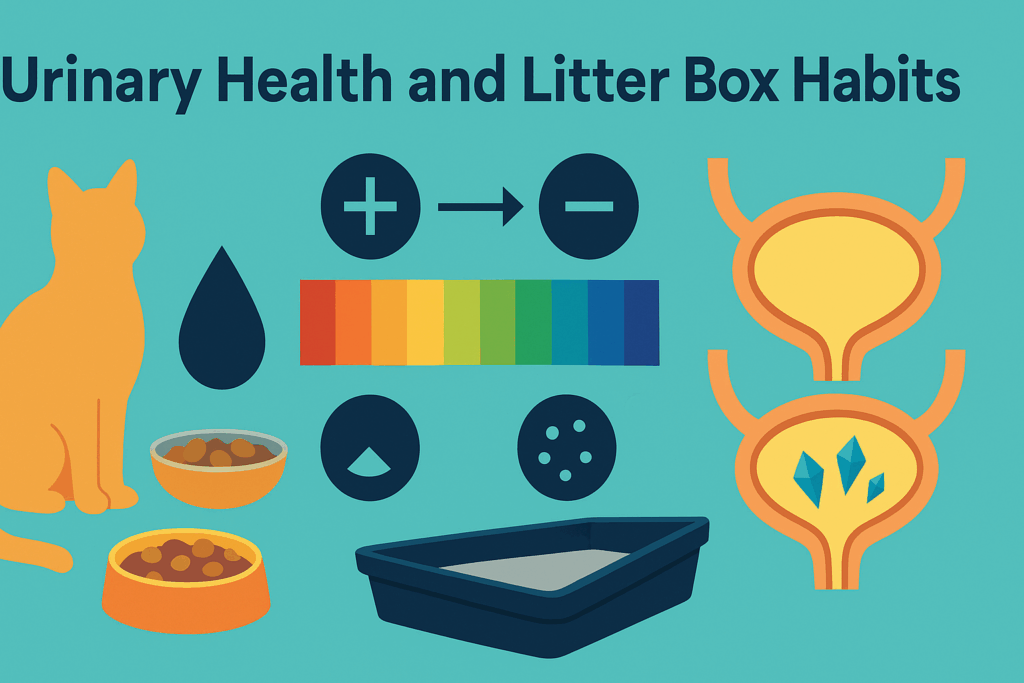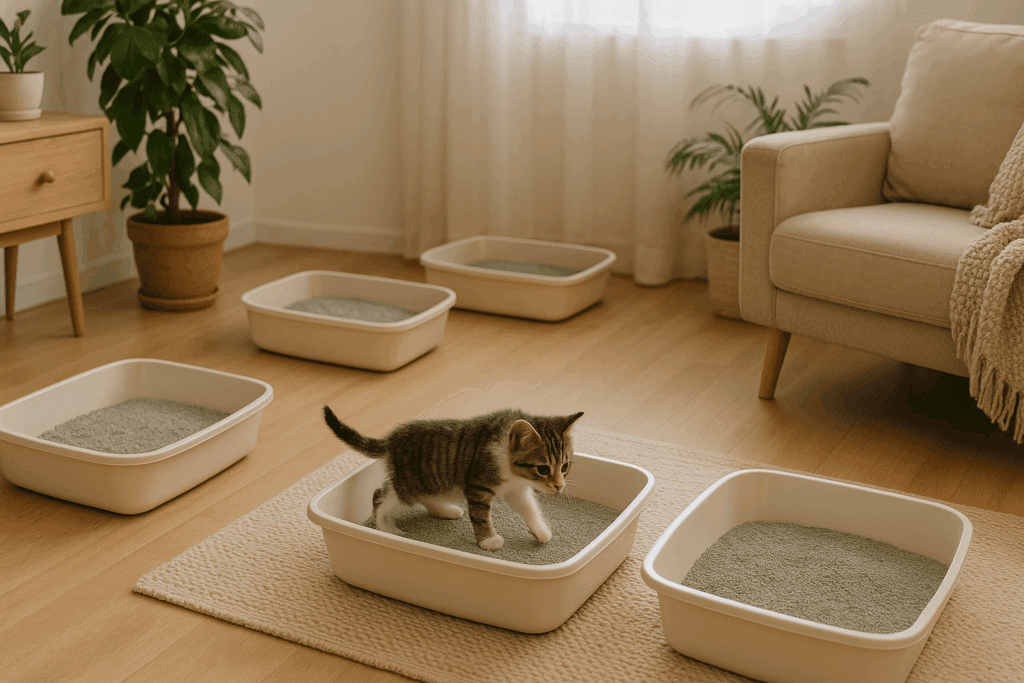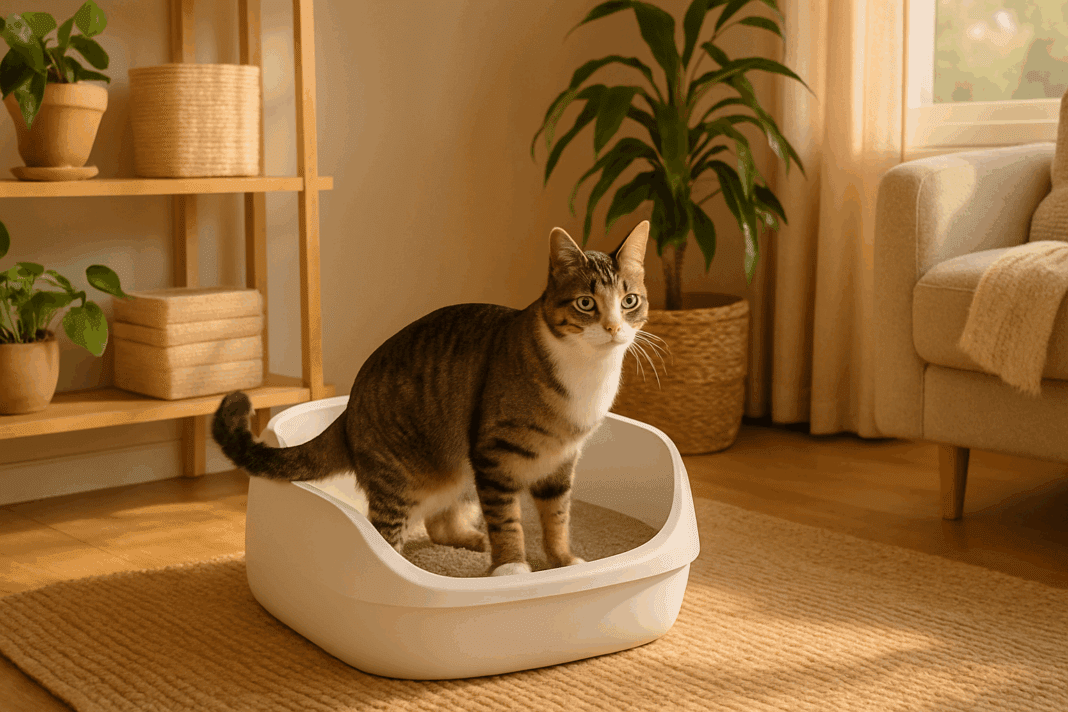Cat owners rarely connect diet with litter box habits, but Dr. Elsey’s shows that nutrition is a key factor in healthy elimination. Explore the science behind how a balanced diet influences your cat’s bathroom behavior and overall wellness.
Litter box issues are among the most common concerns of cat owners. When a cat refuses to use its litter box or displays house soiling behaviors, it often leads to frustration for both the owner and the pet. However, the problem may not lie with the litter box itself but rather with what you’re feeding your cat. Cat-centric companies, like Dr. Elsey’s, have long advocated the importance of diet in promoting healthy elimination and proper litter box habits. This article will highlight the crucial connection between what a cat eats and how it behaves in the litter box, along with the role of litter box training, to help you promote a harmonious home environment.

Understanding Litter Box Habits: More Than Instinct
At first glance, a cat’s litter box behavior may seem purely instinctual—cats instinctively bury their waste to avoid attracting predators. However, there is much more behind the scenes of this seemingly straightforward process. Litter box habits are influenced by various factors, including diet, stress, the cleanliness of the box, and even the type of litter being used.
Proper litter box habits begin with litter box training, usually in kittenhood. While most cats take to litter boxes easily, certain issues, such as house soiling (urinating or defecating outside the litter box), can arise. Many cat owners mistakenly assume the problem lies in behavioral defiance, but in reality, the issue often stems from health-related factors, particularly diet.
Experts have emphasized that what we feed our cats has a direct impact on their elimination habits. Cats, as obligate carnivores, require a diet that is high in protein and low in carbohydrates. When these dietary needs are not met, it can lead to a range of health issues, including digestive upset, urinary tract infections, and even chronic kidney disease—all of which can affect litter box behavior.
How Diet Influences Litter Box Habits
A well-balanced diet plays a vital role in a cat’s overall health and influences how and where it eliminates. Cats are creatures of habit, and any disruption in their health, including digestive or urinary issues, may manifest in changes to their litter box habits. Oftentimes, nutritional imbalances are a key cause of these problems.
Digestive Health and Litter Box Use
A cat’s digestive system is designed to process high-quality animal protein. When cats are fed diets that contain too many carbohydrates or fillers, their digestive systems can become overwhelmed. This can lead to various issues, including:
Constipation:
A lack of fiber and moisture in a cat’s diet can lead to hard stools, making elimination difficult and painful.
Diarrhea:
Diets low in digestible proteins or high in fillers can upset the digestive balance, leading to frequent, loose stools.
General Discomfort:
Cats may experience bloating or stomach pain, which can make them reluctant to use the litter box.
Cats that experience discomfort during elimination may associate the litter box with pain and avoid it altogether, leading to house soiling.
The right diet can make a world of difference. Diets with high-quality protein and omega-3s, such as those found in Dr. Elsey’s cleanprotein™ cat food, can help support digestive health by promoting regular bowel movements and preventing conditions like constipation. By feeding your cat a diet rich in essential nutrients and moisture, you help maintain not only their digestive health but also their willingness to use the litter box consistently.

Urinary Health and Litter Box Habits
Urinary tract infections (UTIs) and other urinary issues are common reasons cats stop using the litter box. Cats with UTIs may experience pain while urinating, leading them to associate the litter box with discomfort. This often results in the cat seeking out other areas to urinate, such as carpets or furniture.
Proper diet plays a crucial role in preventing urinary issues. Here are some dietary considerations:
High Moisture Intake:
Cats require sufficient moisture in their diet to maintain urinary tract health. Feeding wet food or a combination of wet and dry food can significantly enhance a cat’s fluid intake. This helps dilute their urine, reducing the risk of crystal or stone formation that can lead to urinary blockages and infections.
Balanced Nutritional Profile:
Diets that support a neutral urine pH can help prevent the formation of urinary crystals and stones.
By choosing a moisture-rich diet and ensuring that it meets a cat’s specific nutritional needs, pet owners can effectively support their cats’ urinary health. This proactive approach helps maintain a healthy urinary tract and encourages cats to use the litter box regularly and without fear of pain.

Litter Training Plays a Crucial Role
Litter training, particularly in young kittens, is critical for establishing lifelong habits. However, even for adult cats, proper training or retraining may be necessary if litter box issues arise. Let’s take a look at several key strategies for effective litter training, all of which work in tandem with the right diet to ensure success.
Choosing the Right Litter
Cats are sensitive to the type of litter used in their boxes. Unscented, hypoallergenic litter is recommended, as many cats are sensitive to strong smells, and the use of scented litter may contribute to the development of respiratory issues or trigger allergic reactions.
Cleanliness Is Key
A dirty litter box is one of the most common reasons cats refuse to use it. Litter boxes should be cleaned daily to remove clumps and waste, and the box itself should be washed regularly to prevent the buildup of bacteria and odor. Cats are fastidious creatures, and many will avoid a box that doesn’t meet their cleanliness standards.
Placement of the Litter Box
Where you place the litter box in your home can affect how readily your cat will use it. Placing the box in a quiet, low-traffic area that offers privacy could help make your cats feel safe while using their litter box. Additionally, in multi-cat households, having multiple litter boxes is essential to avoid territorial disputes.

The Consequences of Poor Litter Box Habits
When a cat avoids the litter box, the consequences can be stressful for both the owner and the cat. Beyond the obvious issue of cleaning up accidents, cats that avoid the litter box may be signaling an underlying health problem that requires attention. The stress caused by poor litter box habits can also lead to a breakdown in the human-cat relationship, as owners may struggle to understand the cause of the behavior.
Poor litter box habits can also lead to secondary health issues, such as urinary tract infections caused by holding in urine for too long. Cats that avoid the litter box due to discomfort may also become anxious or stressed, further exacerbating the problem. This is why an effective approach should focus on both proper litter training and overall health, with a strong emphasis on nutrition.
Dr. Elsey’s Leadership in Feline Health
Dr. Elsey’s has long been a leader in its quest to improve the lives of cats and their owners through research, innovation, and education. By focusing on the importance of nutrition in fostering healthy litter box habits, Dr. Elsey’s has helped countless cat owners solve one of the most challenging aspects of feline care. Its products, including unscented cat litters and high-protein diets, are designed to support both cats’ physical health and behavioral well-being.
In addition to its product offerings, Dr. Elsey’s is committed to educating the public on the importance of feline health and nutrition. Through its website and publications, Dr. Elsey’s provides valuable resources for cat owners, veterinarians, and animal shelters, empowering them to make informed decisions about cat care.
The Link Between Diet and Behavior
The relationship between diet and litter box habits highlights a larger truth about feline care: diet affects behavior. Cats are sensitive creatures, and their physical health is closely tied to their emotional well-being. By providing your cat with a high-quality, nutritionally balanced diet and employing proper litter training strategies, you’re not only promoting cats’ physical health but also supporting positive behaviors, leading to a harmonious home environment.
Further Reading:
1. Understanding the Nutritional Needs of Healthy Cats and Those with Diet-Sensitive Conditions – Veterinary Clinics: Small Animal Practice
2. The Effect of Diet on Lower Urinary Tract Diseases in Cats – The Journal of Nutrition
3. Elimination behavior patterns of domestic cats (Felis catus) with and without elimination behavior problems – American Journal of Veterinary Research



